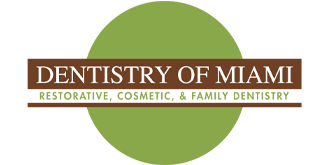There’s nothing that quite stirs up controversy in the way a discussion of bottle vs breastfeeding will. There’s significant evidence on the side of breastfeeding, but this isn’t a possibility for many new mothers. Whether due to career requirements, medical conditions, or mere preference, bottle-feeding becomes the method of choice. When a new mother chooses the bottle as her method of feeding her child, there are dental considerations that have to be considered. Bottle feeding comes with certain risks that breastfeeding mothers largely avoid.
It’s Not About Formula Vs Breastmilk
This is the first essential thing we need to get out of the way. Even if the mother is feeding her own expressed milk by bottle, these dental concerns persist. Drinking from a bottle poses certain situations that don’t occur with the breast. For instance, breasts typically only produce milk while the baby is sucking, especially once the pressure has been released. This prevents the pooling of formula or milk that bathes the teeth in sugars and fats. Further, when breastfeeding the milk tends to pass the baby’s teeth, unlike bottle feeding. These points occur regardless of whether you’re feeding your baby breast milk or formula in the bottle. The issue is the bottle itself.
Thankfully, there are certain important steps you can take to limit the consequences of feeding your baby from a bottle.
- No Bottles In Bed – Regardless of what you’re feeding your baby, they should never take their bottle to bed. The situation of pooling liquid becomes even more pronounced when left to happen over the hours of sleep. You can send your baby to bed with a bottle of water and not cause any concern, however. In general, it’s best to avoid this practice entirely as it can lead to dental problems by complicating weaning.
- Clean the Gums – Your baby’s teeth and gums need to be cleaned, just like yours. The best tool for the job is usually the corner of a terrycloth towel. A bit of damp gauze is also appropriate for this task. This is especially significant in situations where the child has a tooth that’s erupted. Brushing their teeth like this will help prevent decay and gum disease as they mature.
- See Their Dentist Regularly – The first time your child sees the dentist, they shouldn’t be more than a year old. Every six months after that they should have another visit. This schedule is important throughout their whole life. However, it’s even more important during their early years as their jaw and teeth are developing. Getting started with their care early is a great plan.
These guidelines provide a solid foundation for avoiding oral issues caused by bottle feeding. Regardless of which feeding method you choose, seeing your dentist is an essential part of effective dental care.
Your Dentist Is There To Teach You More
Establishing a relationship with your dentist early in their life sets a good precedent for their lasting oral health. Every six months your child should be seen by their dentist. Doing so helps identify problems early and establish steps to manage health problems before they become serious.


